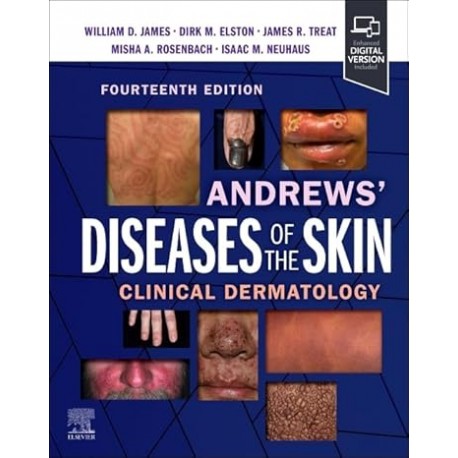Sipariş listesinde ürün yok
Ürün başarıyla alışveriş sepetinize eklendi
Sepetinizde 0 ürün bulunmaktadır. Sepetinizde 1 ürün bulunmaktadır.
Dermatoloji
- Tıp Kitapları
- Acil Tıp
- Adli Tıp ve kriminoloji
- Aile Hekimliği
- Alerji ve İmmünoloji
- Anatomi
- Anesteziyoloji ve Ağrı
- Biyoloji ve Genetik
- Biyomedikal Mühendisliği
- Biyokimya
- Çocuk Cerrahisi
- Çocuk Sağlığı ve Hastalıkları
- Çocuk ve Ergen Psikiyatrisi
- Dahiliye
- Dermatoloji
- Endokrinoloji
- Farmakoloji
- Fiziksel Tıp ve Rehabilitasyon
- Fizyoterapi, Rehabilitasyon ve Spor Hekimliği
- Fizyoloji
- Gastroenteroloji
- Geleneksel ve Tamamlayıcı Tıp
- Genel Cerrahi
- Geriatri
- Göğüs Hastalıkları
- Kalp Damar Cerrahisi
- Göz Hastalıkları
- Halk Sağlığı
- Hematoloji
- Histoloji ve Embriyoloji
- İnfeksiyon Hastalıkları
- Kadın Hastalıkları ve Doğum
- Kardiyoloji
- Kulak Burun Boğaz Hastalıkları
- Mikrobiyoloji immunoloji
- Nöroşirürji
- Nefroloji
- Nöroloji
- Nükleer Tıp
- Onkoloji
- Ortopedi ve Travmatoloji
- Patoloji
- Plastik Cerrahi
- Sağlıklı Yaşıyoruz
- Spor Hekimliği
- Psikiyatri
- Radyasyon Onkoloji
- Radyoloji
- Romatoloji
- Tıp Tarihi ve Tıp Etiği
- Tıbbı İstatistik Araştırma
- Tıp ve Sağlık Hukuku
- Tıbbi Laboratuvar Deney Bilimi
- USMLE & Board Review
- Üroloji
- Yoğun Bakım
- Göğüs Cerrahisi
- Uyku Tıbbı
- Diş Hekimliği Kitapları
- Eczacılık Kitapları
- Beslenme ve Diyet Kitapları
- Veteriner Hekimlik
- DUS Kitapları
- DUS Akademi Konu Kitapları Serisi
- DUS için Açıklamalı Deneme Sınavları Serisi
- DUS Spot Bilgiler Serisi
- Miadent Konu Kitapları Serisi
- Miadent Soru Kitapları Serisi
- DUS Çıkmış Soru Kitapları
- DUSDATA Şampiyonların Notu
- DUS Review Serisi
- DUSDATAMAX Soru Kitapları Serisi
- DUS Akademi Soru Kitapları Serisi
- Diğer Kitapları Serisi
- TUS Kitapları
- Çıkmış TUS Soru Kitapları
- 41 Deneme Serisi
- MEDOTOMY Serisi
- Tusmer
- Klinisyen Konu Kitapları Serisi
- Optimum Serisi
- Premium Serisi
- PRETUS Deneme Sınavları Serisi
- ProspekTUS Serisi
- Klinisyen Soru Kitapları Serisi
- Tusdata Ders Notları
- Tıbbi İngilizce
- Vaka Soruları Serisi
- Tüm Tus Soruları
- Hızlı Tekrar Serisi
- UTS Serisi
- KAMP ÖZEL NOTLARI
- Meditus Serisi
- YDUS Kitapları
- Hemşirelik ve Ebelik kitapları
- HEMŞİRELİK / halk sağlığı
- HEMŞİRELİK / Hemşirelik Esasları
- HEMŞİRELİK / İç Hastalıkları
- HEMŞİRELİK / Cerrahi Hastalıkları
- HEMŞİRELİK / Kadın hastalıkları ve doğum Ebelik
- HEMŞİRELİK / Ruh Sağlığı ve Hastalıkları
- HEMŞİRELİK / Hemşirelikte Eğitim
- HEMŞİRELİK / Çocuk Sağlığı ve Hastalıkları
- HEMŞİRELİK / Acil tıp hemşireliği
- SAĞLIK BİLİMLERİ
- Çocuk Gelişimi
- Sağlık Yöneticiliği
- Optisyenlik
- Odyoloji
- Saç Bakımı ve Güzellik Hizmetleri
- Anestezi Teknikerliği
- Tıbbi Dökümantasyon ve Sekreterlik
- Tıbbi Laboratuvar Teknisyenliği
- İş Sağlığı ve Güvenliği
- Ergoterapi
- Ağız ve Diş Sağlığı Teknisyenliği
- Dil ve Konuşma Terapisi
- İlk ve Acil Yardım Teknikeri (Paramedik)
- Radyoloji Teknisyenliği
- EĞİTİM BİLİMLERİ
- Değerler Eğitimi
- Eğitim Programları ve Öğretim
- Eğitim Psikolojisi
- Eğitim Yönetimi ve Denetimi
- Eğitimde Drama
- Eğitim Temelleri
- Eğitim Teknolojileri
- Okul Öncesi Eğitim
- Ortaokul Öğretmenliği
- Öğretmenlik Eğitimi Bölümleri
- Ölçme ve Değerlendirme
- Özel Eğitim
- Psikolojik Danışmanlık ve Rehberlik
- Sınıf Öğretmenliği
- Sınıf Yönetimi Etkili Öğretim
- İLETİŞİM
- İŞLETME
- İKTİSAT / EKONOMİ / MALİYE
- MİMARLIK - SANAT
- BİLİM TEKNİK
- MÜHENDİSLİK - TEKNİK
- FEN BİLİMLERİ
- ÇOCUK VE GENÇLİK KİTAPLARI
- BEŞERİ/SOSYAL BİLİMLER
- ÇEVRE ve YER BİLİMLERİ
- GIDA TARIM ve HAYVANCILIK
- BİYOMEDİKAL MÜHENDİSLİĞİ
- SEYAHAT TURİZM
- SOSYAL ÇALIŞMALAR
- SPOR BİLİMLERİ
- YÖNETİM - SİYASET - ULUSLARARASI İLİŞKİLER
- SINAVLAR HAZIRLIK
- ÖNERİLEN ÜRÜNLER
- Çok Satan Romanlar
- E-Kitaplar
- AYBAK
- Kırtasiye
 Daha büyük görüntüle
Daha büyük görüntüle Andrews' Diseases of the Skin Clinical Dermatology 14th Edition
9780323878708
BU KİTAP İÇİN ÖN SİPARİŞ ALINMAKTADIR. TESLİM SÜRESİ 6 - 8 HAFTADIR. BİLGİ ALMAK İÇİN MAĞAZAMIZI ARAYINIZ
10 630,62 TL
8 504,50 TL
-20%
KDV Hariç: 8 504,50 TL
- Yorum Yaz
| Through thirteen superb editions, Andrews’ Diseases of the Skin has remained the reference of choice for core information in dermatology for residency through clinical practice. The fully revised 14th Edition of this award-winning title continues the tradition of excellence with new tools and strategies for diagnosis and treatment, new entities and newly recognized diseases, increased coverage of skin of color, new videos, and more. It’s the reference you’ll turn to again and again when faced with a clinical conundrum or therapeutically challenging skin disease. | ||
| Features: | ||
| ||
| Table Of Contents: | ||
1. Skin: Basic Structure and Function | ||
| ISBN | 9780323878708 |
| Basım Yılı | 2024 |
| Basım Sayısı | 14 |
| Sayfa Sayısı | 1032 |
| Yazar(lar) | James, Elston, Treat, Rosenbach |

